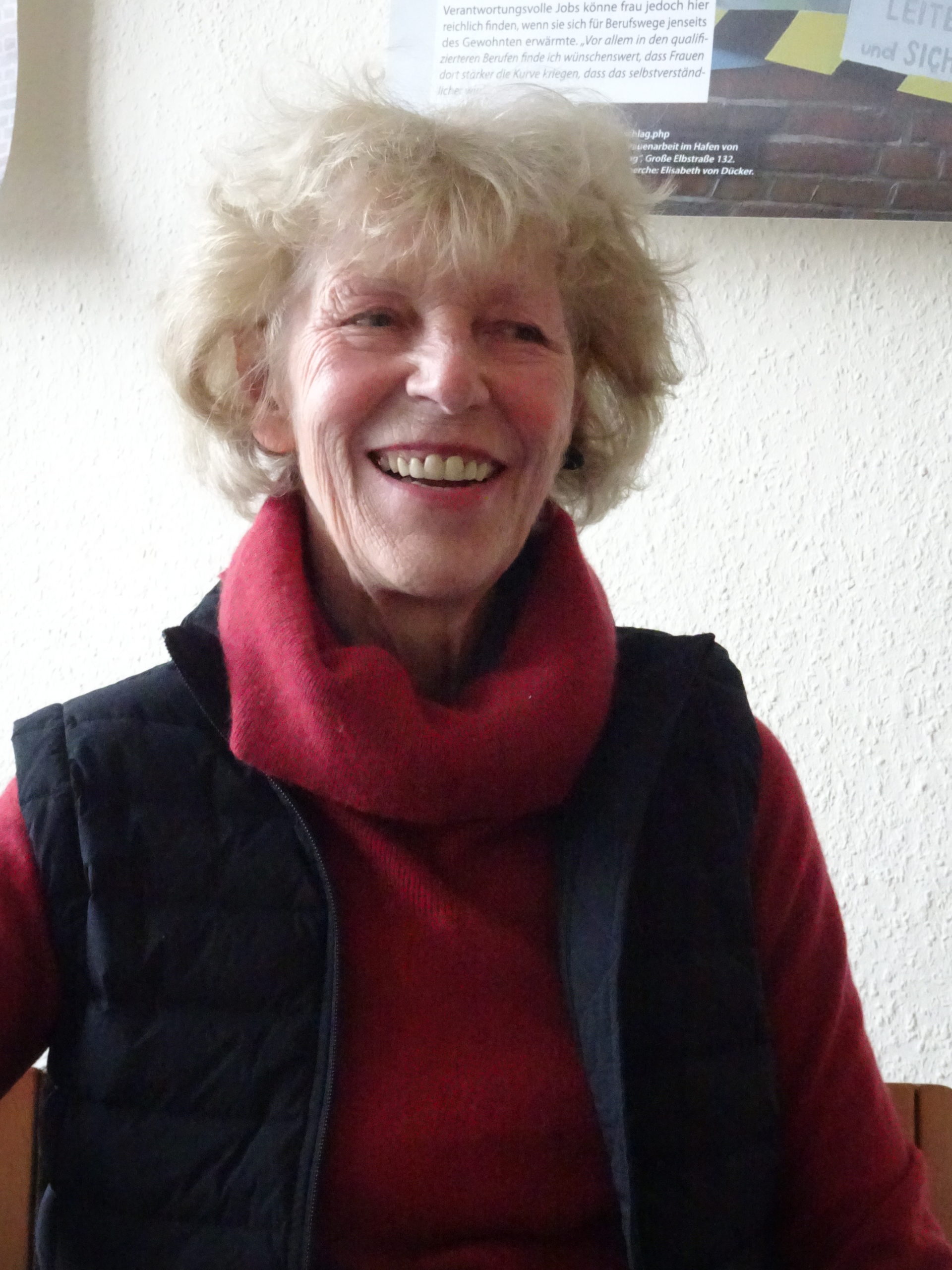The International Association of Women’s Museums (IAWM) deeply mourns the death of member and friend Elisabeth von Dücker, who died in July.
In May, she had written to IAWM and was happy to be a member of the network. She had been connected to the women’s museums and to IAWM for years through common concerns and cooperation. In 2013 she had contributed to the book ‘Women’s: Museum. Curatorial Politics in Feminism, Education, History, and Art’. She has been known for her curatorial practice with special emphasis on women’s issues and gender equality.

Elisabeth von Dücker
In January 2020, Juliane Brumberg honored her as an important personality in the German women’s movement in the online portal beziehungsweise – weiterdenken. With her kind permission we would like to reproduce excerpts from this text here:
Lissi – as she is called by friends and colleagues – has always focused on the work of women.
She curated colourful murals as FrauenFreiluftGalerie in Hamburg. This is a lively long-term project:
We wanted and still want to make visible the working world of women in the port of Hamburg,
she reported. To do this, she and her painter colleague Hildegund Schuster used the grey surfaces of old buildings or the walls of staircases.
Elisabeth von Dücker speaks of herself as a long-runner: “Once you’ve caught fire, the projects go on and on.”
Enthusiasm for the museum
Now who is this woman who is so full of ideas? First and foremost, she is a passionate museum woman. After an internship in a museum during her studies, it was immediately clear to her: “I want to go to the museum!” She studied art history, ethnology and classical archaeology. In 1975 she started a scientific voluntary service at the Altona Museum and was thus in the right place at the right time.
Feminist issues transferred to the museum
Elisabeth von Dücker took feminist issues into the work of the museum, curated further exhibitions at the Altona Museum and became head of department there.
In 1986, she moved as a museum scientist to a museum that did not even exist yet: the Museum der Arbeit in Hamburg-Barmbek, which was in its founding phase. Elisabeth von Dücker was responsible for the area of everyday and women’s history and for the voluntary ‘Arbeitskreis Frauen im Museum’. The debates revolved around the expansion of the traditional concept of work, unpaid, socially undervalued household work, gender roles and collection strategies.
Prostitution as a workplace
Elisabeth von Dücker was not only interested in conventional employment worlds, but also in topics that are not immediately obvious:
It was important to me to help ensure that the museum does not function as a traditional temple of the muses, but also that new ground is broken there, that changes of perspective are tested, and that a dialogue between now and the future takes place.
So she dared to approach the subject of sex work. The starting point was the new Prostitution Act, which came into force in 2002 and regulates the legal status of prostitution as a service, in order to improve the legal and social situation of prostitutes. As with any other work, this enables them to be covered by social insurance.
SEXARBEIT – Prostitution – Lebenswelten und Mythen was probably one of my central exhibitions, as I learned so much from it. We had a sophisticated exhibition architecture in 14 rooms on 700 square meters. There was a queue to see the opening in November 2005. – Elisabeth von Dücker
Appreciative recognition
Her feminist work was noticed and recognised. Since 2008, the Hamburg State Women’s Council has honoured a woman every year who has rendered outstanding services to the equality of women and men. The very first prize winner was Elisabeth von Dücker.
She retired in 2007, which does not mean that she no longer worked. Recently, she has also been in charge of a travelling exhibition with photos and texts about female dock workers.
The complete article in German can be read here: http://www.bzw-weiterdenken.de/2020/01/liebe-zur-arbeit-der-frauen-die-museumskuratorin-elisabeth-von-duecker/